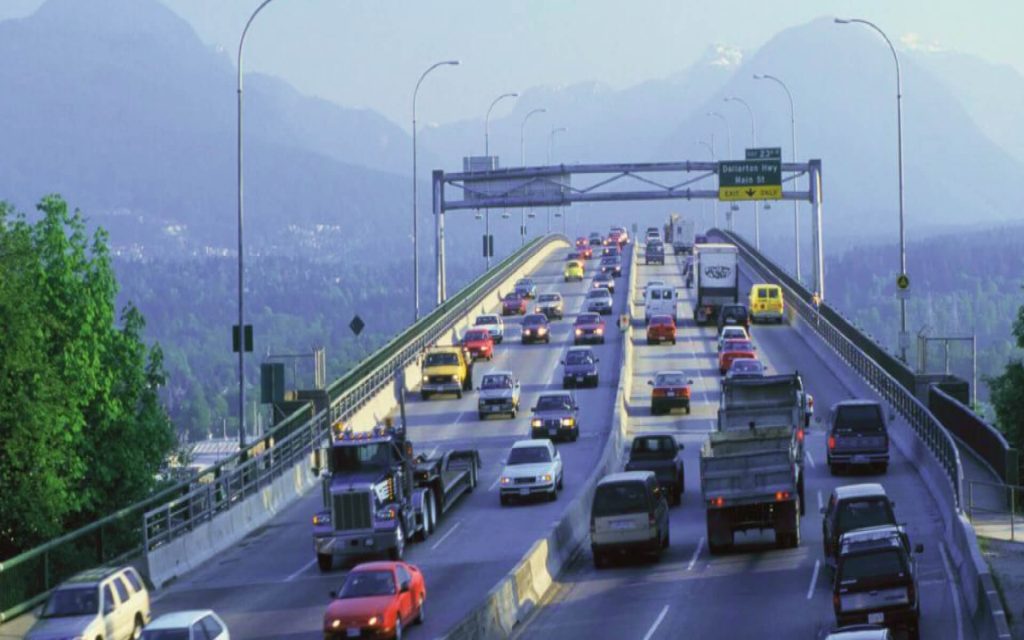Tracking emission from transportation
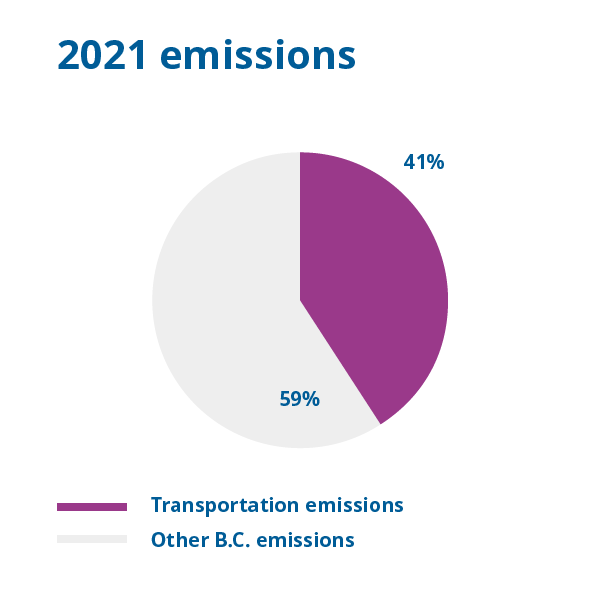
Transportation caused 41% of B.C.’s total emissions in 2021.
Breaking down emissions from transportation
We measure emissions caused by operating:
- Passenger vehicles like cars, trucks, ATVs and motorcycles
- Trains and heavy-duty trucks that move goods
- Off-road vehicles like those used by farms and mines
- Airplanes and helicopters (within B.C.)
- Public transit, like buses and ferries
- Commercial and recreational boats
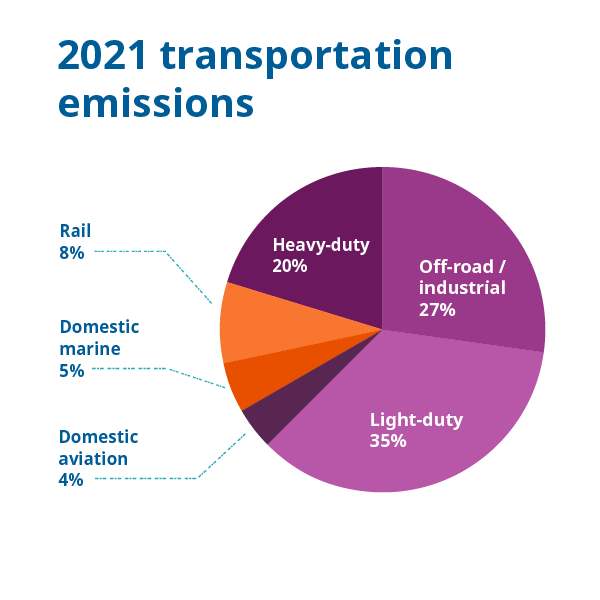
Reducing emissions from transportation
Reducing emissions from transportation has many benefits. It will lead to cleaner air, less congestion, better health, more clean jobs and a stronger economy.
Our goal is to reduce emissions from transportation by 27-32% by 2030.
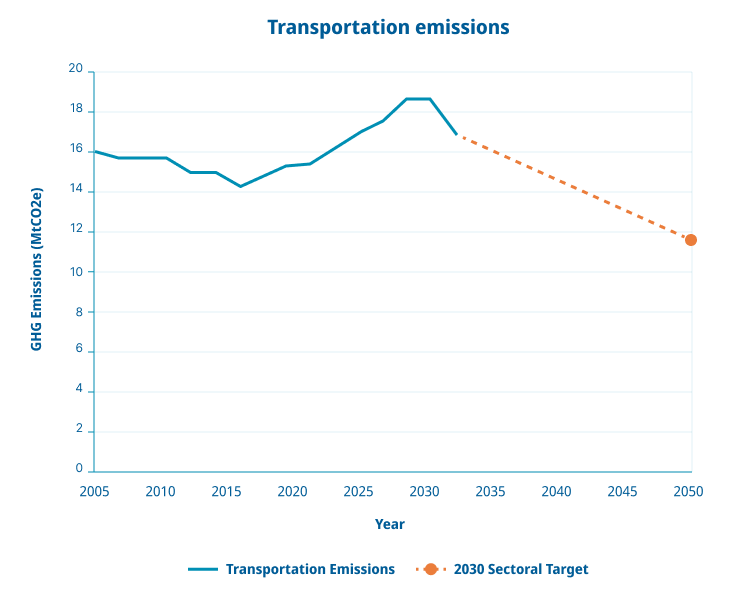
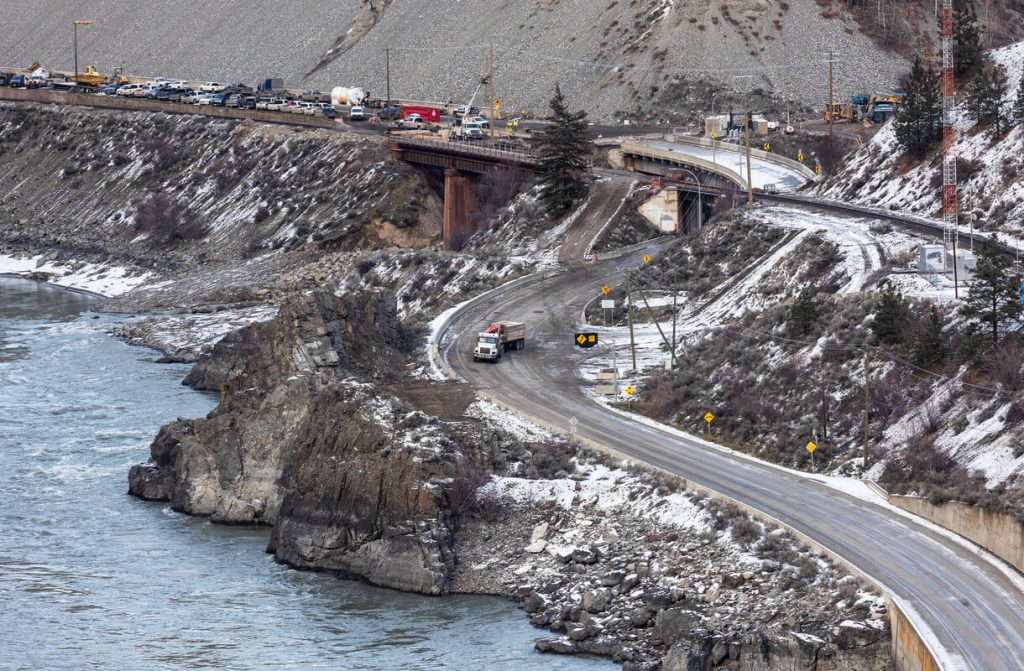
Getting roads ready for climate change
We’re strengthening highways and resource roads so they won’t be washed out by future floods.
B.C. is taking action
Learn how B.C. is improving vehicle efficiency while making it easier for people to drive less or drive an electric vehicle.
-
Making electric passenger vehicles more affordable
Go Electric rebates can help individuals and businesses buy an electric vehicle.
-
Making it easier to get around without your own vehicle
Move. Commute. Connect. is B.C.’s active transportation strategy. It was launched in 2019 as a long-term strategy to help more people use active transportation more often.
-
Making our fuel cleaner
We’re setting stricter emissions standards and penalties so that using fuel creates less carbon.


